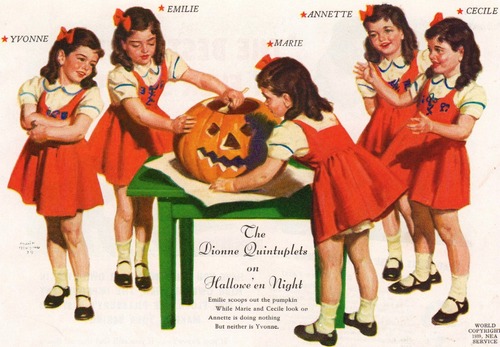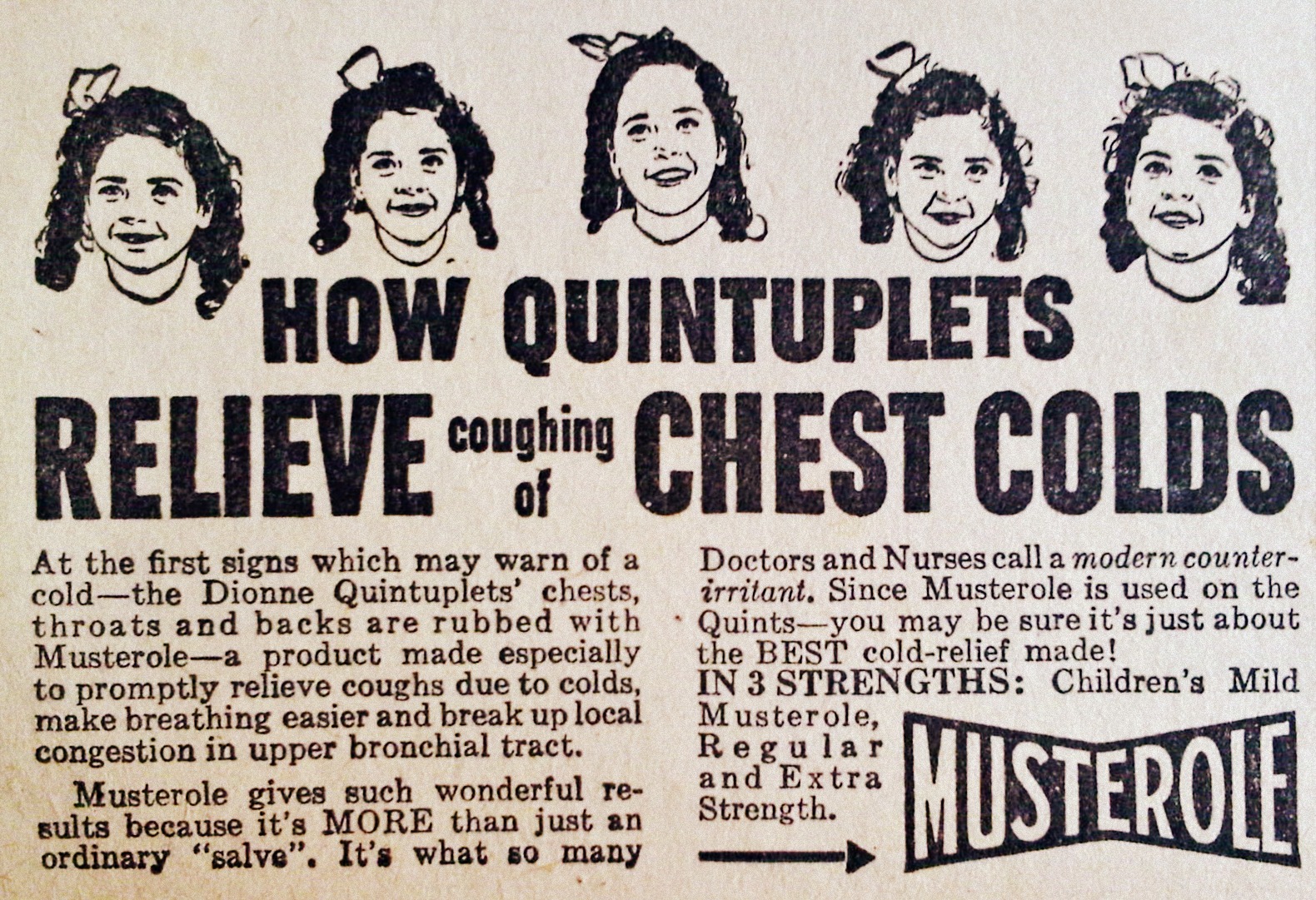Child labor laws frequently come up in discussions of the Duggars. There are laws about how child actors are paid—laws intended to prevent their parents from exploiting them—but these laws do not apply to the children of reality TV shows. As I was thinking about this recently, the Dionne quintuplets came to mind, and I began to find some interesting parallels.
The Dionne quintuplets—five identical baby girls—were born in 1934, in Ontario. The Great Depression affected more than just the U.S., and it was in that economic climate that the quintuplets became a bit of a phenomenon both in Canada and beyond. They brought people hope much the same way Shirley Temple did. At four months of age they were taken from their parents, ostensibly to prevent their exploitation, and made wards of the king by order of the legislature.

The Canadian government preceded to turn the quintuplets into a tourist industry. The girls grew up in a glass house—literally.
…at present they live in a fully equipped, comfortable home, containing all modern conveniences.
Their little estate is made up of about seven acres, and is surrounded by a heavy metal fence seven feet high and topped with barbed wire.
The grounds within are prettily landscaped and contain many planted trees, a tiny garden, patches of lawn, and three buildings. At one side of the children’s house, or main building, is the observation playground’s structure. Here the general public may watch their play (through glass and a fine screen) from a protected [dark] corridor. By this means the observation periods are carried out with minimum noise for, and distraction of, the children.
The Dionne quintuplets were viewed by over three million people. Videos of their care were shown as newsreels, and they were involved in three Hollywood films. Their images were on postcards, and there were entire product lines that invoked the Dionne brand—both lines of dolls and keepsakes, and unrelated products such as soaps, etc.









In 1943, when the girls were nine, they were returned to their parents. Sadly, their years at home with their parents and numerous siblings were not happy. Their parents were resentful of the upset they had caused the family, and treated them harshly as a result, and their father sexually abused them. All five girls left home as soon as they turned eighteen.
While the girls had netted the state outlandish sums—they were a bigger tourist attraction than Niagra falls and brought in hundreds of millions of dollars in less than a decade—the trust fund set up for them contained only a small percentage of this money, and by the time the girls came of age little was left. The girls were not even aware that the money their parents had been spending was technically theirs, and the girls were so sheltered that the were unprepared for the world upon adulthood, and even what money was left was soon gone. In 1998, the three surviving sisters, by then elderly and living in poverty, were awarded $2.8 million in compensation, and an apology by the government of Ontario.
In 1997, when the McCaughey septuplets were born, the three remaining sisters wrote a letter to the septuplets’ parents—a letter that was ultimately published in Time Magazine:
Dear Bobbi and Kenny,
If we emerge momentarily from the privacy we have sought all our adult lives, it is only to send a message to the McCaughey family. We three would like you to know we feel a natural affinity and tenderness for your children. We hope your children receive more respect than we did. Their fate should be no different from that of other children. Multiple births should not be confused with entertainment, nor should they be an opportunity to sell products.
Our lives have been ruined by the exploitation we suffered at the hands of the government of Ontario, our place of birth. We were displayed as a curiosity three times a day for millions of tourists. To this day we receive letters from all over the world. To all those who have expressed their support in light of the abuse we have endured, we say thank you. And to those who would seek to exploit the growing fame of these children, we say beware.
We sincerely hope a lesson will be learned from examining how our lives were forever altered by our childhood experience. If this letter changes the course of events for these newborns, then perhaps our lives will have served a higher purpose.
Sincerely, Annette, Cécile and Yvonne Dionne
At this point you may be wondering why I thought of the Dionne quintuplets in relation to the Duggars. The reason is simple—like the Duggar children, the Dionne quintuplets were not considered actors per se, and fell into a loophole of sorts in which children can be exploited—whether by the government or by their parents—without receiving proper compensation for their efforts. Further, the Duggar children have in some sense also grown up in a glass house, followed around by cameras documenting their upbringing. And finally, in each case it was the children’s existence that brought the cameras in the first place.
Will the Duggar children come to feel as exploited as the Dionne sisters ultimately did? I can’t say. I would feel better, however, if the Duggar children were going to be awarded some portion of their parents sizable earnings.















